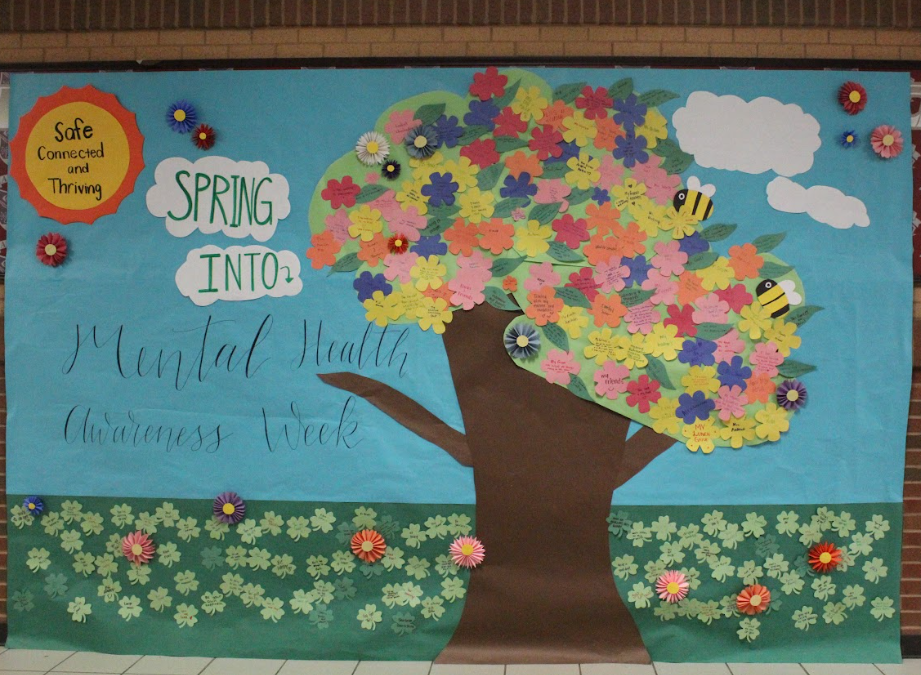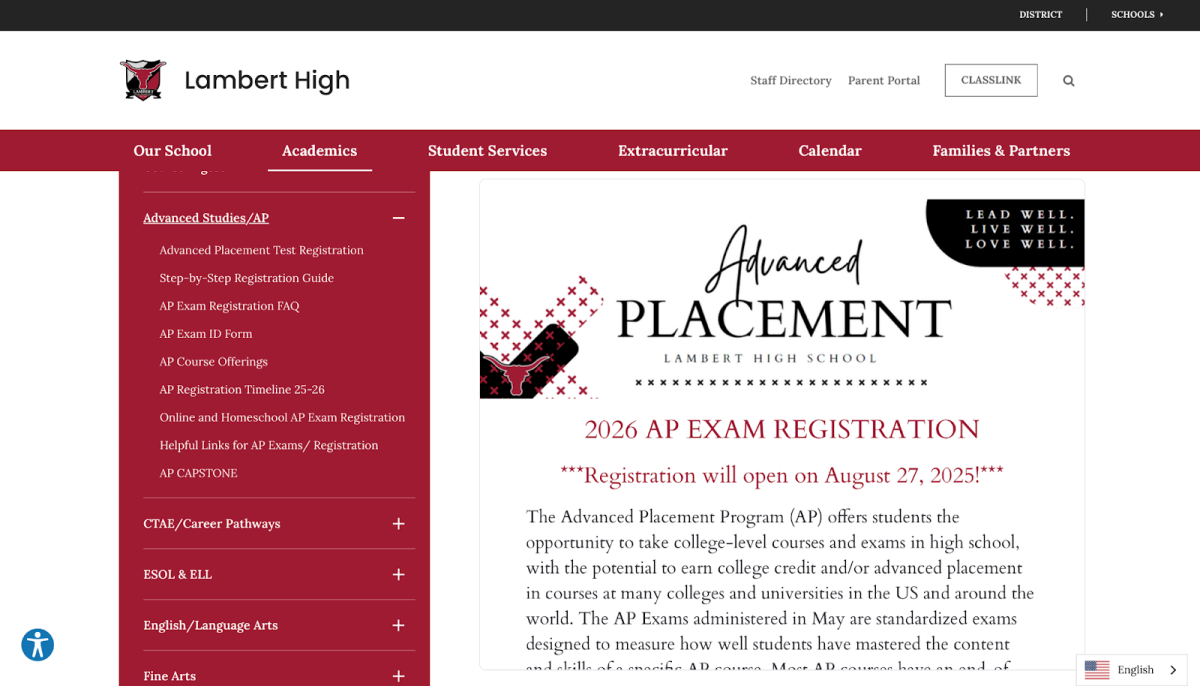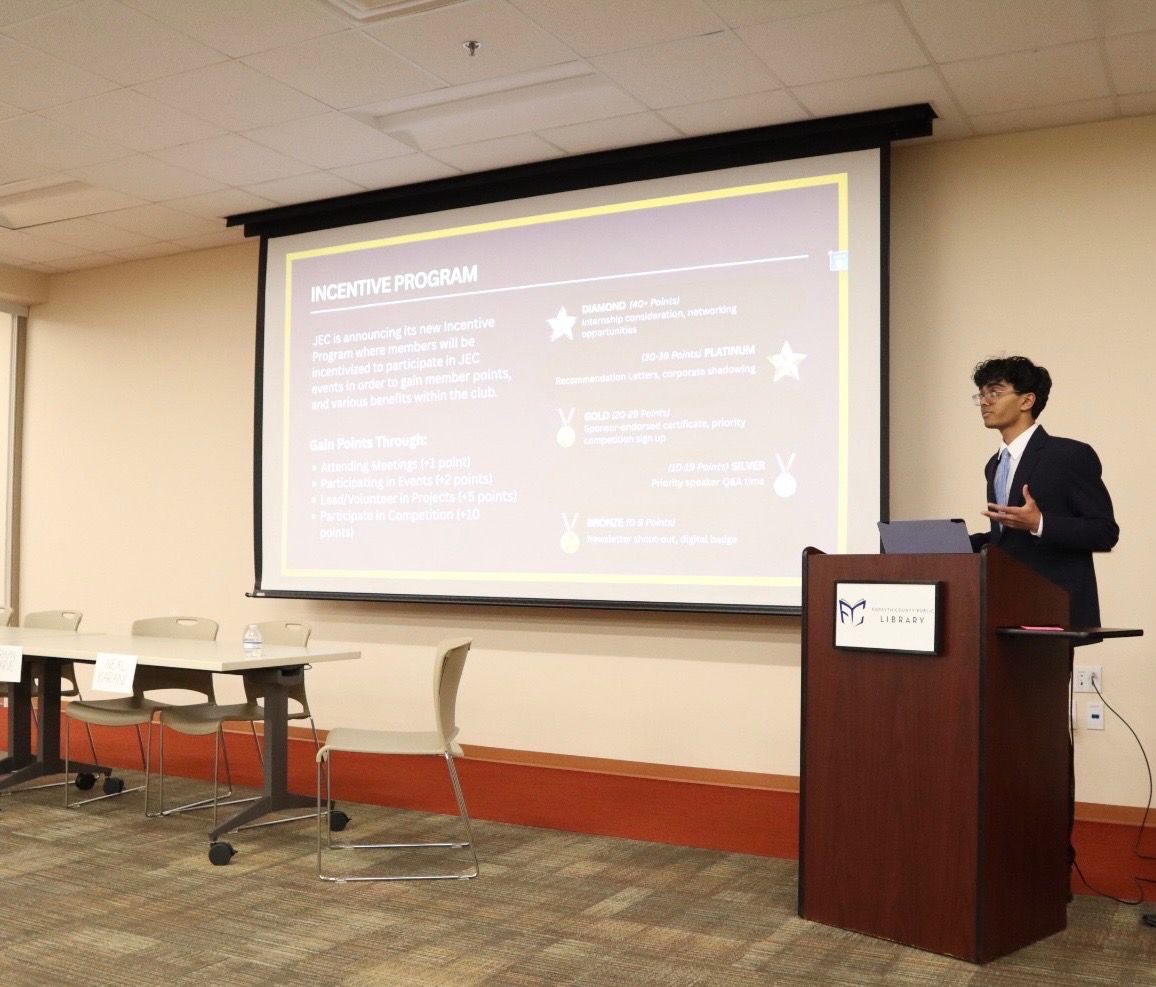Last week, Lambert High School hosted its second annual Mental Health Awareness Week, a growing tradition that brings mental wellness to the forefront of school life. This initiative comes at a crucial time for students as teenage years are some of the most tumultuous times in anyone’s life. Amid academic pressures, extracurricular overload and societal pressures, students grapple with many internal issues that go unseen, such as the pressure to be perfect.
According to the Centers for Disease Control and Prevention, 42% of teens experience persistent feelings of sadness or hopelessness, and the World Health Organization finds that one in seven teenagers face a mental disorder. Despite these alarming numbers, the stigma surrounding mental health and wellness is still a very harsh reality. Campaigns like Mental Health Awareness Week are vital because they cut through the silence and remind students that support exists, even when it’s hard to ask for it.
“We worry the most about the kids that are not on our radar…because those are the kids that are suffering in silence,” Lambert counselor Ms. O’Grady said. “We have this whole week to let them know that we’re here, you’re not alone in your struggles and please come and talk to someone if you need to.”
This school wide goal of making support visible and accessible, was featured in every activity during the week. From the balloon arch greeting students at the front entrance to the morning affirmations and courtyard activities, the campaign was intentionally designed to be noticeable, inviting and engaging.
“I wanted things to be in the students’ faces so that they would go like, ‘Oh, what’s that?’ and then we can talk to them more about these things,” Ms. O’Grady explained.
This year’s campaign featured a very streamlined schedule, with events held outside on Monday, Wednesday and Friday. The aim was to ensure that the crowds would be manageable, eliciting deeper engagement from students.
Students from Lambert’s health and wellness clubs also played a huge role in making the campaign feel more student-centred. They hosted morning activities at the front of the school, helped hand out wellness resources throughout the entire week and even shared important statistics and facts during the daily announcements. Their involvement made the message much more relatable, proving that mental health awareness is important to not just counselors, but students as well.
However, some of the most impactful additions to the campaign were the inclusion of guest speakers. On Tuesday, John Trautwein, a former Red Sox player and the co-founder of the Will to Live foundation, gave a heartfelt speech about suicide awareness and how students can reach out to each other and be “Life Teammates.” On Thursday, student athletes got to hear from former Clemson University running back Javis Austin about overcoming challenges and mental health struggles. Both talks brought something necessary into the spotlight: vulnerability. Trautwine’s message of becoming a “Life Teammate” emphasized that students don’t need to be therapists to make a difference; they just have to be there for one another. Austin’s talk resonated deeply with athletes who often face intense pressure, reminding them that strength means having the courage to face pain.
Numerous students showed up in support of the campaign, readily engaging with the activities and listening attentively to speakers. This past week created space for real conversations and quiet moments of connection. Looking to the future, the counseling team hopes for a campaign that is more student-led in order to grow into something more collaborative and long-lasting. In a school culture that often prioritizes performance, Mental Health Awareness Week served as a reminder that well-being matters just as much and that no one is alone in their struggles.















